#Nobel Laureates in Economics
Text

Friedrich Von Hayek
Friedrich August Von Hayek was a phenomenal Economist . He is marked as one of the greatest economist of all times .
Friedrich Hayek was born on 8th May in Vienna, 1899 . He was the oldest of the three brothers named Heinrich Hayek & Erich Hayek . His Dad, August Hayek was a professor at University of Vienna and also a well-known doctor . Mom, Née Von Hayek was a daughter of a renowned economist named Franz Von Juraschek . Née was cousin of the legendary philosopher - Ludwig Wittgenstein . In 1921, when the book 'Tractatus Logico Philophicus' was published, Friedrich was the first reader to read it . It was seen that, Friedrich was literally so frequent in the intellectual academic bent . Nonetheless, he was failed to get better grades in the respective fields as - Greek, Latin & Mathamatics . On the other side, Hayek read many evolutionary works such as - Jean Baptiste Monet De Lamarck, Hugo De Vries, Gregor Johann Mendel, August Weissman & Ludwig Feuerbach at a very early age .
In 1917, Hayek joined in the Austro-Hungarian army and fought with courage to the Italian front . He was decorated for his stupendous gallantry in the war .
Later, at the University of Vienna, Hayek initially studied Philosophy, Psychology & Economics . Afterwards, in 1921 & 1923 he obtained doctorates in law and Politics . Amidst the rhythm of 1932-1924, Hayek was researching about the macroeconomic data on American economy and the operations of the Federal Reserve . He was motivated by Wesley Claire Mitchell and carried out a doctoral research on monetary stabilization . However, he didn't wind up this research . Thereafter, he got the touch of Ludwig Von Mises & read the great book named 'Socialism' . He started to attend seminars of Mises accompanied by his university pals such as Alfred Schutz, Kaufmann, Gottfried Haberler & Fritz Machlup . In the late 1920's Hayek established & served as a post of Director, with the help of Mises . Then, London School of Economics & Political Science appointed him in 1931 . A year later, Britain was put up with the damage accounting for Winston Churchill's decision .
After the Nazi's aggression costed Austria in 1938, Hayek was reluctant to go to Austria . Six years later Hayek wrote the outstanding book on liberalism - 'The Road to Serfdom' . Hayek was literally influenced by the classical liberal thinker named - Alexis De Toqueville . In 1947, Hayek was nominated as a Fellow of the Royal Economic Society . In the 50's, Hayek left the The London School of Economics & Political Science . The University of Chicago evoked him as a chairship . Nevertheless, his salary wasn't came from the Chicago University fund . It's arrived from a foundation named William Volker Fund . At the University of Chicago Hayek worked with Milton Friedman .
He received the Guggenheim Fellowship in 1954 . He also served as a professor in the University of Freiburg ( 1962 - 1968 & 1978 - 1992 ) & the University of Salzburg ( 1968 - 1977 ) .
He was honoured as the most illustrious award of the universe - Nobel Prize in Economics in the 1974 .
This indescribable person rested in peace on 23rd March, 1992 . While he breathed his last he was in the University of Freiburg . Literally, he was a representative of a devoted orthodoxy professor .
0 notes
Text
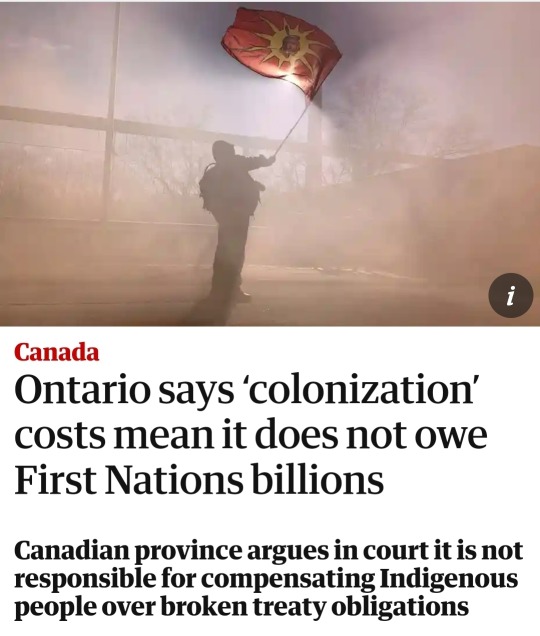
watertight legal defence: "your honour, I can't possibly be made to pay this fine. look at how much money I spent breaking the law in the first place!"
#absolutely unhinged#the anishinaabe have two time nobel economic laureate joseph stiglitz coming to argue for them soon#seems like these clowns are just throwing shit at the wall to get a cheaper settlement lmfao#i guess i should tag this like#Canadian politics#cdnpoli
84 notes
·
View notes
Text
second thoughts on economics
Nobel laureate in economics on second thoughts, published on the IMF website - worth reading and it's pretty short and to the point
https://www.imf.org/en/Publications/fandd/issues/2024/03/Symposium-Rethinking-Economics-Angus-Deaton
via
2 notes
·
View notes
Text
Amartya Sen: The Unsung Hero!
Amartya Sen: Amidst a whirlwind of false news, let’s unravel the inspiring journey of renowned economist Amartya Sen, a man whose legacy continues to shape the world. In this blog post, we delve into the life and achievements of this extraordinary individual, debunking myths and celebrating the truth.
Unraveling the Truth:In a recent wave of misinformation, reports surfaced claiming the demise…

View On WordPress
#Amartya Sen#Capability Approach#Collective Choice#Development Economics#Economist#Ethics#Famine#Freedom#Human Development Index#Indian Economist#Inequality#Nobel Laureate#Nobel Prize in Economics#Philosophy#Political Economy#Poverty#Public Intellectual#Rationality#Senian Perspective#Social Choice Theory#Social Justice#Social Philosophy#Welfare Economics
0 notes
Text
Who Gets What and Why "by Alvin E. Roth" - Complete Book Overview
Who Gets What and Why Books Synopsis
“Who Gets What and Why” by Alvin E. Roth is an illuminating exploration of market design and the science of matching markets. Roth, a Nobel laureate in economics, delves into the intricate mechanisms that determine how resources, opportunities, and individuals are allocated in various markets, from school choice and kidney transplants to the labor market.…

View On WordPress
#Alvin Roth#Book Overview#books about ecommerce#books about economics for beginners#Economics Book#economybooks about economics and finance#Market Design#Matching Markets#Nobel Laureate#Roth’s Work
0 notes
Text
The Nobel Memorial Prize in Economic Sciences
0 notes
Text
@lovelanguageisolate, whom I'm in Denver with: fun fact, the Denver airport is the third largest one in the world by geographic footprint
me: huh. no offense, but why? This isn't exactly a place I think of as A Destination
LLI: Denver is a tech city that lots of people move to for the climate. It's also got some of the world's best aerospace and atomic and optical physics research. Also the world's most accurate clock. My professor is a Nobel laureate who prepared the first Bose Einstein condensate
me: huh
LLI: people in Denver built a lot of the internet backbone for airlines to communicate with each other. If you look at very early ARPANET maps in the 70s, there's a key link between the east and west coasts in Boulder
LLI: Denver is a Bay satellite like Austin, and if you look at cities by world economic impact, Denver is in the same tier as Seattle and Austin
me: I feel like I'm five seasons into a sci-fi show and the galactic superpower got retconned as having a significant territory that we've somehow never heard about. This is the hurried exposition we get before the protagonists set course for it
95 notes
·
View notes
Text
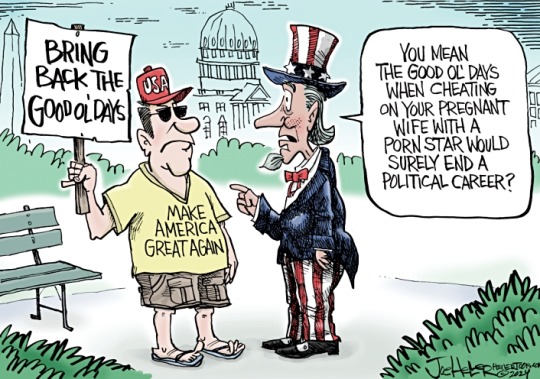
I suspect that the vegetative MAGA crowd is showing the effects of Long COVID on their memories. They have forgotten that Trump's horribly botched response to the pandemic triggered a recession and caused unemployment to spike. Let's not even get into the death toll for 2020.
Sore LOSER Trump left office on 20 January 2021. The 12 months prior to that consisted of one disaster after another.
Nobel economics laureate Paul Krugman looked at "Trump-stalgia".
The Peculiar Persistence of Trump-stalgia
Soaring deaths aside, four years ago more than 20 million Americans were unemployed; Trump left office with the worst job record of any president since Herbert Hoover. Also, the country was in the grip of a violent crime wave, with murders soaring.
Today, by contrast, we’ve just experienced the longest stretch of unemployment below 4 percent since the 1960s, and the violent crime wave — Trump didn’t cause it, but it did happen on his watch — has been rapidly receding.
[ ... ]
One common explanation of Trump-stalgia is that many people give the former president a mulligan for 2020, attributing all the bad things that happened in his final year to the Covid pandemic (and ignoring the extent to which Trump’s botched response to the pandemic added to the death toll). That is, when they say “four years ago” they actually mean “before the pandemic.” That surely explains part of what’s going on.
But there are also problems with this story. If Trump gets a pass for the economic and social damage inflicted by the pandemic, why shouldn’t Biden get a similar pass for problems that manifested on his watch but surely reflected delayed effects of Covid disruptions?
For example, ripple effects of the pandemic clearly explain a lot of the inflation surge of 2021-22. How do we know this? Because prices rose almost everywhere. Different nations measure inflation somewhat differently, but if you look at the Harmonized Index of Consumer Prices, which is available for a number of countries, you find that cumulative inflation since the beginning of the pandemic has been almost eerily similar in the United States and in Europe.
Also, Trump boosters aren’t consistent about sending 2020 down the memory hole. Trump claimed that he presided over gasoline prices of less than $2 a gallon, but this was true only for a couple of months in 2020 — a period when global oil prices were low because the pandemic had the world economy flat on its back.
Trump can't get away from his pandemic catastrophe. Telling Americans to drink bleach, take ineffective malaria pills, and stick ultraviolet lights up their butts certifies him as a two-bit quack. And it took him 50 days after the first COVID-19 case appeared in the US before he declared an emergency. Remember his infamous January 22nd comments on CNBC?
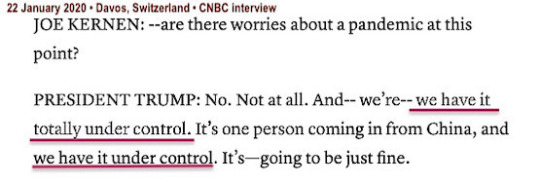
It wasn't "just fine".
As for now, feelings haven't caught up with the facts.
Trump-stalgia is undoubtedly a powerful force.
Biden helped lead us through a time of turmoil — much of which happened even before he took office — to a pretty good place, with very low unemployment, fairly low inflation and falling crime.
But many Americans seem unaware of the good news; for example, the drop in crime doesn’t appear to have broken through to public consciousness at all. And there seems to be a romanticized vision of what things were like under Biden’s predecessor, which somehow omits the terrible things that happened in 2020.
So are you better off than you were four years ago? For most Americans, the answer is clearly yes. But for reasons that still remain unclear, many seem disinclined to believe it.
Good news is seldom reported. And when it does occur these days, you absolutely won't hear it on Fox News.
One thing that's certainly worse now is the situation regarding reproductive freedom. Roe v. Wade got overturned by the US Supreme Court in 2022. Though if Hillary Clinton had made those three appointments to SCOTUS instead of Donald Trump, Roe v. Wade would have been upheld by a 7 to 2 vote instead of being tossed.
Remind people (repeatedly!) of who appointed the SCOTUS justices who made abortion nearly impossible in many states. In an age of short attention spans and low information voters, don't assume that everybody knows. Trump bragged about killing Roe v. Wade – his influence lives on through his awful appointments to the federal courts.
Most Americans probably couldn't pass those simplistic civics tests given to wannabe new citizens. Patiently explains how the system works – or is supposed to.
Even when times are good, people will still find stuff to complain about. As the late author Randall Jarrell wrote: "The people who live in a Golden Age usually go around complaining how yellow everything looks."
Though this may not exactly be a "golden age", it beats avoidable pandemic dystopia, a coup attempt, and dreadful appointments to the federal courts. And it's certainly superior to having Trump back as a sleazy dictator on day one.
#paul krugman#trump-stalgia#covid-19#pandemic#trump's botched pandemic response#reproductive freedom#us supreme court#joe heller#election 2024#vote blue no matter who
19 notes
·
View notes
Text
Happy Birthday to Malala!
Happy 25th birthday to Malala! The Pakistani girls' education activist, who survived an assassination attempt by the Taliban ten years ago, became the youngest Nobel Peace Prize laureate in history at the age of 17. In 2020, Malala graduated from Oxford University with a Bachelor of Arts degree in Philosophy, Politics and Economics. Today, she continues her work of breaking down barriers to education for girls around the world through her non-profit organization, the Malala Fund.
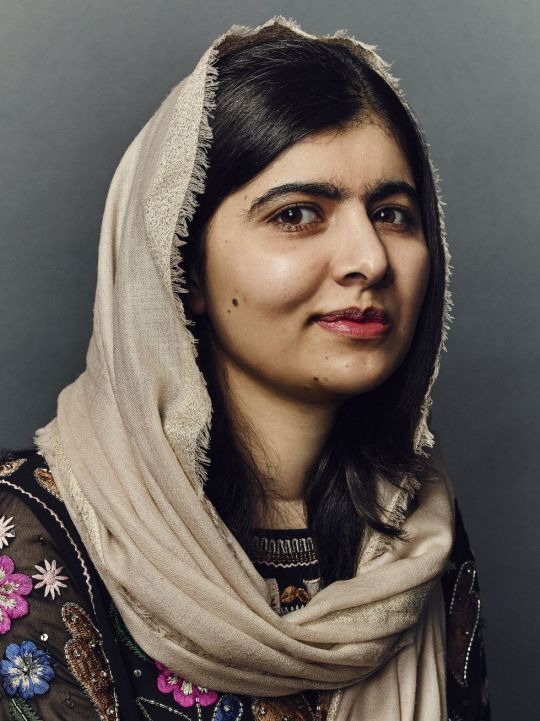
594 notes
·
View notes
Note
As a subject, I would like to suggest Elinor Ostrom, the Nobel laureate economist who disproved Malthusian economics and showed that it is possible for a self-regulating community to live without depleting resources?
I mean, HELL YEAH, that's fantastic, but I suspect some campaigning will be necessary to let her win.
25 notes
·
View notes
Text
Nobel Lecture given by Nobel Peace Prize Laureate 2022 Center for Civil Liberties / Центр Громадянських Свобод, delivered by Oleksandra Matviichuk , Oslo, 10 December 2022.
Time to take responsibility
Your Majesty, Your Royal Highnesses, dear members of the Norwegian Nobel Committee, citizens of Ukraine and citizens of the world.
This year, the entire Ukrainian nation was waiting for the announcement of the Nobel Peace Prize laureates. We see this Prize as a recognition of the efforts of the Ukrainian people, who have bravely stood up to the attempts to destroy peaceful development of Europe, as well as a celebration of the work being done by human rights activists in order to prevent military threat for the entire world. We are proud of having Ukrainian language heard during the official ceremony for the first time in history.
We are receiving the Nobel Peace Prize during the war started by Russia. This war has been going on for eight years, 9 months and 21 days. For millions of people, such words as shelling, torture, deportation, filtration camps have become commonplace. But there are no words which can express the pain of a mother who lost her newborn son in a shelling of the maternity ward. A moment ago, she was caressing her baby, calling him by his name, breastfeeding him, inhaling his smell – and the next moment a Russian missile destroyed her entire universe. And now her beloved and longed-for baby lies in the smallest coffin in the world.
There are no available solutions for the challenges we and the whole world are facing now. People from different countries are also fighting for their rights and freedoms in extremely difficult circumstances. So, today I will at least try to ask the right questions so that we could start looking for these solutions.
First. How can we make human rights meaningful again?
Survivors of the World War II are no longer around. And the new generations began to take rights and freedoms for granted. Even in developed democracies, forces questioning the principles of the Universal Declaration of Human Rights are on the rise. But human rights cannot be upheld once and for all. The values of modern civilization must be protected.
Peace, progress and human rights are inextricably linked. A state that kills journalists, imprisons activists, or disperses peaceful demonstrations poses a threat not only to its citizens. Such a state poses a threat to the entire region and peace in the world as a whole. Therefore, the world must adequately respond to systemic violations. In political decision-making, human rights must be as important as economic benefits or security. This approach should be applied in foreign policy too.
Russia, that has been consistently destroying its own civil society, illustrates this very well. But the countries of the democratic world have long turned a blind eye to this. They continued to shake hands with the Russian leadership, build gas pipelines and conduct business as usual. For decades, Russian troops have been committing crimes in different countries. But they always got away with this. The world has not even adequately responded to the act of aggression and annexation of Crimea, which were the first such cases in post-war Europe. Russia believed that they could do whatever they want.
Now Russia is deliberately inflicting harm on civilians aiming to stop our resistance and occupy Ukraine. Russian troops intentionally destroy residential buildings, churches, schools, hospitals, shell evacuation corridors, put people in filtration camps, carry out forced deportations, kidnap, torture and kill people in the occupied territories.
The Russian people will be responsible for this disgraceful page of their history and their desire to forcefully restore the former empire
Second. How to start calling a spade a spade?
People of Ukraine want peace more than anyone else in the world. But peace cannot be reached by country under attack laying down its arms. This would not be peace, but occupation. After the liberation of Bucha, we found a lot of civilians murdered in the streets and courtyards of their homes. These people were unarmed.
We must stop pretending deferred military threats are “political compromises”. The democratic world has grown accustomed to making concessions to dictatorships. And that is why the willingness of the Ukrainian people to resist Russian imperialism is so important. We will not leave people in the occupied territories to be killed and tortured. People’s lives cannot be a “political compromise”. Fighting for peace does not not mean yielding to pressure of the aggressor, it means protecting people from its cruelty.
In this war, we are fighting for freedom in every meaning of the word. And for it, we are paying the highest possible price. We, Ukrainian citizens of all nationalities, should not discuss our right to a sovereign and independent Ukrainian state and development of the Ukrainian language and culture. As human beings, we do not need an approval of our right to determine our own identity and make our own democratic choices. Crimean Tatars and other indigenous peoples should not prove their right to live freely in their native land in Crimea.
Our today’s fight is paramount: it shapes the future of Ukraine. We want our post-war country to let us build not some shaky structures, but stable democratic institutions. Our values matter most not when it’s easy to embody them, but when it’s really hard. We must not become a mirror of the aggressor state.
This is not a war between two states, it is a war of two systems – authoritarianism and democracy. We are fighting for the opportunity to build a state in which everyone’s rights are protected, authorities are accountable, courts are independent, and the police do not beat peaceful student demonstrations in the central square of the capital.
On the way to the European family, we have to overcome the trauma of war and its associated risks, and affirm the choice of the Ukrainian people determined by the Revolution of Dignity.
Third. How to ensure peace for people around the world?
The international system of peace and security does not work anymore. Crimean Tatar Server Mustafayev as well as many others are put in Russian prisons because of their human rights work. For a long time, we used law to protect human rights, but now we do not have any legal mechanisms to stop Russian atrocities. So many of the human rights activists were compelled to defend what they believe in with arms in their hands. For example, my friend Maksym Butkevych, who is now in Russian captivity. He and other Ukrainian prisoners of war, as well as all detained civilians, must be released.
The UN system, created after the World War II by its winners, provides for some unjustified indulgences for individual countries. If we don’t want to live in the world where rules are set by states with stronger military capabilities, this has to be changed.
We have to start reforming the international system to protect people from wars and authoritarian regimes. We need effective guarantees of security and respect for human rights for citizens of all states regardless of their participation in military alliances, military capability or economic power. This new system should have human rights at its core.
And the responsibility for this lies not only with politicians. Politicians are tempted to avoid looking for complex strategies, which require a lot of time. They often act as if global challenges would disappear by themselves. But the truth is that they only get worse. We, people who want to live in peace, should tell politicians that we need a new architecture of the world order.
We may not have political tools, but we still have our words and our position. Ordinary people have much more influence than they think they do. Voices of millions of people from different countries can change world history faster than interventions of the UN.
Fourth. How to ensure justice for those affected by the war?
Dictators are afraid that the idea of freedom will prevail. This is why Russia is trying to convince the whole world that the rule of law, human rights and democracy are fake values. Because they do not protect anyone in this war.
Yes, the law doesn’t work right now. But we do not think it is forever. We have to break this impunity cycle and change the approach to justice for war crimes. A lasting peace that gives freedom from fear and hope for a better future is impossible without justice.
We still see the world through the lens of the Nuremberg Tribunal, where war criminals were convicted only after the fall of the Nazi regime. But justice should not depend on resilience of authoritarian regimes. We live in a new century after all. Justice cannot wait.
We need to bridge the responsibility gap and make justice possible for all the affected people. When the national system is overloaded with the war crimes. When the International Criminal Court can try just a few selected cases or has no jurisdiction at all.
War turns people into numbers. We have to reclaim the names of all victims of war crimes. Regardless of who they are, their social status, type of crime they have suffered, and whether the media and society are interested in their cases. Because anyone’s life is priceless.
Law is a living continuously evolving matter. We have to establish an international tribunal and bring Putin, Lukashenko and other war criminals to justice. Yes, this is a bold step. But we have to prove that the rule of law does work, and justice does exist, even if they are delayed.
Fifth. How can global solidarity become our passion?
Our world has become very complex and interconnected. Right now, people in Iran are fighting for their freedom. People in China are resisting the digital dictatorship. People in Somalia are bringing child soldiers back to peaceful life. They know better than anyone what it means to be human and stand up for human dignity. Our future depends on their success. We are responsible for everything that happens in the world.
Human rights require a certain mindset, a specific perception of the world that determines our thinking and behavior. Human rights become less relevant if their protection is left only to lawyers and diplomats. So, it is not enough to pass the right laws or create formal institutions. Societal values will always prevail.
This means that we need a new humanist movement that would work with meanings, educate people, build grass-root support and engage people in the protection of rights and freedoms. This movement should unite intellectuals and activists from different countries, because the ideas of freedom and human rights are universal and have no state borders.
This will enable us to create a demand for solutions and jointly overcome global challenges – wars, inequality, attacks on privacy, rising authoritarianism, climate change, etc. This way we can make this world a safer place.
We do not want our children to go through wars and suffering. So, as parents we have to assume the responsibility and act, not to shift it on our children. Humanity has a chance to overcome global crises and build a new philosophy of life.
It’s time to assume the responsibility. We don’t know how much of the time we still have.
And since this Nobel Peace Prize Ceremony takes place during the war, I will allow myself to reach out to people around the world and call for solidarity. You don’t have to be Ukrainians to support Ukraine. It is enough just to be humans.
Copyright © The Nobel Foundation 2022
#russian ukrainian war#war in ukraine#russian war crimes#stoprussia#save ukraine#stopputin#stop russia#stopwar#russian aggression in ukraine#ukraine#nobel prize
127 notes
·
View notes
Text
The Florida governor Ron DeSantis likes to brag that he’s just getting started with his rightwing agenda.
“You ain’t seen nothing yet,” was how he put it in one recent speech.
He means it as a promise, but it ought to be heard as a threat. That’s particularly true for women whose abortion rights already are being dangerously curtailed and for gay and transgender students who are already being treated as lower life forms. It’s particularly true for those who care about voting rights and press rights, and for those who cherish the power of books and free expression as a foundation of societal wellbeing.
Of course, if DeSantis should somehow capture the presidency (he’s undeclared thus far but the Oval Office is clearly on his mind), that threat would extend to our entire nation and to the world beyond.
“DeSantis rules by an authoritarian playbook,” wrote Miami Herald columnist Fabiola Santiago, despite the Orwellian title of the governor’s book, The Courage to Be Free.
Let’s review some of what has happened on his watch with the help of a rubber-stamp Republican state legislature.
The Parental Rights in Education Act, better known as “don’t say gay”, prevents teachers from talking about gender identity and sexual orientation in some elementary-school grades.
The so-called Stop Woke Act restricts how race is discussed in Florida’s schools, colleges and even private workplaces.
Another law pulled a slew of books from public school libraries while they are reviewed for their supposed suitability. (There are no limits to the craziness: after one parent’s complaint, many high schools yanked The Bluest Eye, the literary masterpiece by Nobel laureate Toni Morrison.)
There’s more, including on the healthcare front. Florida’s medical boards now bar transgender youth from gender-affirming medical care such as hormone therapy. State law bans most abortions beyond 15-weeks gestation; a new bill would tighten that to only six weeks.
And, of course, never forget that true liberty means ready access to guns: Florida residents may soon be able to carry firearms without a state license.
Governor courage-to-be-free also wants to limit press rights, including supporting a challenge to the landmark US supreme court decision that for decades has given journalists enough protection from defamation lawsuits to let them do their jobs.
When DeSantis signed into law new restrictions on voting rights, he did so in a room where local reporters were shut out. Fox News, however, got special access. In another blast of Orwellian doublespeak, the law promises “election integrity” while actually making it harder to vote by mail and greatly limiting the use of drop boxes. No surprise: those rules have the harshest impact on voters of color and those with disabilities.
DeSantis also got his legislature to establish a new and completely unnecessary election crimes office. After the first few cases turned into a legal embarrassment, he got his rubber-stampers to change the law again.
Given all of this, it’s a scary thought that he’s just getting started.
That’s why it’s appalling to see the media lavish him with so much fawning coverage. Fox News has put its calamitous love affair with Donald Trump on ice while it swoons over his younger rival.
DeSantis enjoys glowing treatment from the mainstream press, too. All too predictably, many of the headlines from his recent State of the State speech not only centered on presidential politics but also magnified his boasts. Here’s a skepticism-free example from CNBC:
“‘You ain’t seen nothing yet’: Florida Governor Ron DeSantis touts state record and fuels 2024 speculation.”
The media should be delving into the substance of that record, including the kitchen-table economic issues that have nothing to do with performative anti-woke nonsense. Instead of letting DeSantis play at will on his favorite field of divisive social issues, reporters should dig into his war on teachers’ unions, like trying to limit how they can collect dues and where they conduct union business. Reporters might even point out that this runs counter to Republican claims that they are now the workers’ party.
One of the smartest things I read last week was a journalism manifesto in six words from NYU professor Jay Rosen: Not the odds, but the stakes. This sums up the organizing principle he recommends the media adopt for the political cycle ahead; such coverage would emphasize not the horserace but the consequences for our democracy.
With DeSantis, as with Trump, those stakes are incredibly high. Especially if his threat is true and we ain’t seen nothing yet.
49 notes
·
View notes
Text
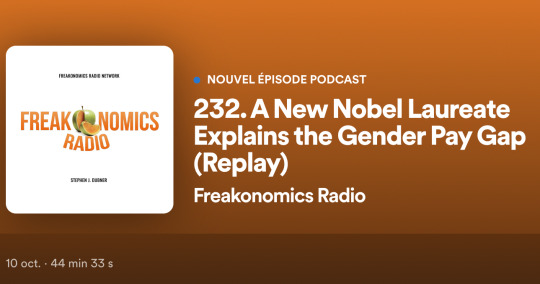
Freakonomics Radio: A New Nobel Laureate Explains the Gender Pay Gap (Replay)
"Claudia Goldin is the newest winner of the Nobel Prize in Economics.
We spoke with her in 2016 about why women earn so much less than men — and how it's not all explained by discrimination."
18 notes
·
View notes
Text
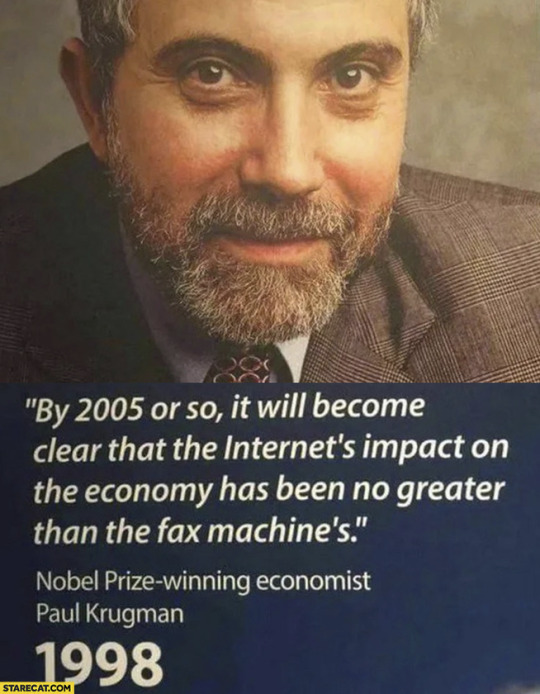
27 notes
·
View notes
Text

Music and Poetry, a Timeless Relationship!
The relationship between music and poetry is so strong that has survived the ages. It has been challenged, questioned, scrutinized but is still alive today to prove that some bonds are hard to break.
While each is an autonomous form of art, music, and poetry work well together. Yes, there's a close connection between many forms of art – dancing, painting, performing, architecture, sculpture. They are all forms of expression. But there's something unique that connects poetry and music, and the interesting part is that it does so for centuries.
Music has been part of all societies around the globe to what it seems to be the beginning of time. It is believed that music was originated in Africa by tribes that used various materials to create what we know today as instruments to produce sounds. It became an essential part of every culture and influenced by it and all aspects of life – religion, climate, economic and social factors, customs. Poetry, as a form of rhythmic language that intends to evoke meaning, was known before written texts and was used to remember laws, family history, events. To remember and not forget, some phrases were repeated. The tone of voice was rhythmic. It is, perhaps, then when poetry and music met. The Greek rhapsodies, the Japanese tanka, the Chinese Shijing are all typical examples of sung poems. Eventually, the forms and genres of poetry broadened and while used for different purposes and were of various lengths, they all included some rhythm – epics, hymns, psalms, elegies, hadiths, suras.
The strong bond between poetry and music is clearer when the two forms of art are seen independently. Each of them can stand alone but also get inspired by the other. It is obvious that there are many forms of music as there are many forms of poetry. And they cannot always co-exist. Take “The Cubist Break-up” by E.E. Cummings, for example. Could it ever have a melody attached to it? Not all poems can blend with music.
Then again, we must make a distinction here. The lyrics of a song can be beautiful enough and structured in such a way as to be considered a poem. But not all lyrics are poems. And so, our main concern is to see how a poem, which was not meant to be sung, blended with music so nicely as to become popular.
That's a very crucial point to the history of the relationship between poetry and music. Poems, which would have gone unnoticed, have been loved by people when they became songs. In Greece, the poem “Arnisi” written by Nobel laureate and one of the biggest Greek poets, Giorgos Seferis, became extremely popular when it was composed by Mikis Theodorakis. It is said that T.S. Eliot wrote “The Wasteland” inspired by Stravinsky's The Rite of Spring. And that Claude Debussy's Prelude a l'Apres-midi d'un faune was inspired by Stephane Mallarme's “Afternoon of a Faun.” And that Maurice Ravel composed the Trois Poemes de Mallarme, based on the poems by Mallarme.
7 notes
·
View notes
Text

According to some, trickle-down economics is a hoax that enriches the wealthy at the expense of the American people. The theory states that lowering taxes on the wealthy will benefit everyone, but Nobel laureate Joseph Stiglitz argues that post-World War II evidence does not support this. Critics also argue that the added benefits the wealthy receive can distort the economic structure as lower-income earners without an equal tax cut adds to income inequality.

2 notes
·
View notes